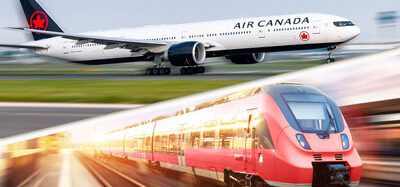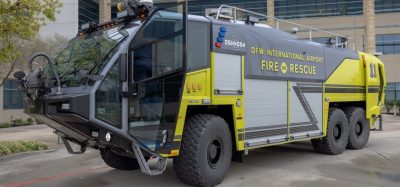Re-establishing global connectivity in the aviation sector
- Like
- Digg
- Del
- Tumblr
- VKontakte
- Buffer
- Love This
- Odnoklassniki
- Meneame
- Blogger
- Amazon
- Yahoo Mail
- Gmail
- AOL
- Newsvine
- HackerNews
- Evernote
- MySpace
- Mail.ru
- Viadeo
- Line
- Comments
- Yummly
- SMS
- Viber
- Telegram
- Subscribe
- Skype
- Facebook Messenger
- Kakao
- LiveJournal
- Yammer
- Edgar
- Fintel
- Mix
- Instapaper
- Copy Link
Posted: 11 December 2020 | Kadri Samsunlu | No comments yet
The effects of the COVID-19 pandemic have been felt worldwide, no more so than in the aviation industry. Kadri Samsunlu, Chief Executive Officer of Istanbul Airport, speaks to International Airport Review’s Leah Hockley about the strategies being implemented to protect passengers and encourage their safe return to air travel, and the need for a coherent, connected and global approach.
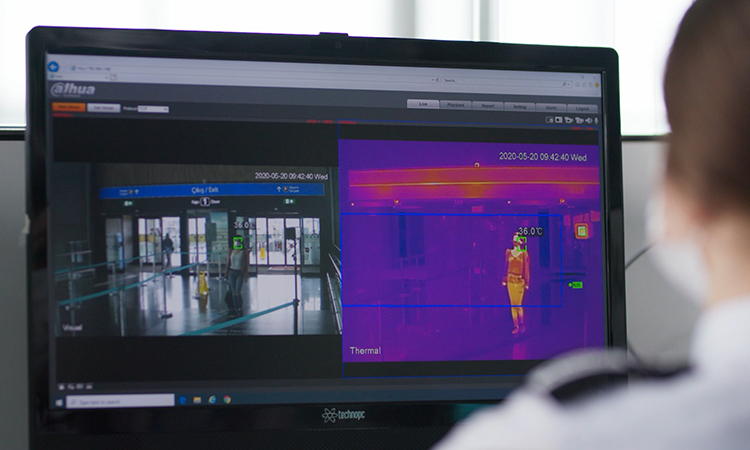

Credit: Istanbul Airport
How has the COVID-19 pandemic impacted Istanbul Airport?
The pandemic has profoundly impacted the aviation industry, changing passenger needs and expectations globally”
The pandemic has profoundly impacted the aviation industry, changing passenger needs and expectations globally. Many airports around the world have adapted to the new COVID-19 reality and implemented preventive measures. Personally, it was a really heart-breaking period at Istanbul Airport, going from 200,000 passengers a day to zero for almost two months. It truly was a challenging experience for all of us.
As the pandemic hit, Istanbul, like many other airports in the world, suspended scheduled passenger flights until June 2020. Only a few repatriation flights were operating, while cargo operations continued more or less at the same levels.
At the beginning of June 2020, the domestic market opened and, now, we have between around 500 to 600 flights daily. We are handling almost 60,000 to 70,000 passengers per day – almost one third of the figures recorded at the same time in 2019.
As a global hub airport, we are continuously working closely with government experts, health professionals and airlines to safely handle the situation, and passengers are gradually starting to return to Istanbul Airport”
As a global hub airport, we are continuously working closely with government experts, health professionals and airlines to safely handle the situation, and passengers are gradually starting to return to Istanbul Airport. While no-one in the sector has a clear view of when we will reach 2019’s volumes, that is the benchmark that the industry is anticipating. I expect us to reach almost 50 per cent of 2019’s passenger numbers by the end of 2020. Full recovery to 2019’s levels, I expect, might be achieved by the end of 2021 – but, naturally, there are certain preconditions to this. First and foremost, we need to have a vaccine. While a vaccine may not be a permanent solution, it would regain passenger trust in airports and airlines as a safe means of travel. Also, the pent-up demand for tourism generated by millions forced to stay at home is certain to aid a strong recovery towards the end of 2021.
What measures have been implemented to protect passengers and staff from the spread of the virus?
Communication with passengers and staff is always a top priority for us, and this is no different throughout the pandemic”
One of our first steps in fighting COVID-19 was to strengthen health and safety measures, which we have done thoroughly. Communication with passengers and staff is always a top priority for us, and this is no different throughout the pandemic.
We are fortunate to have the world’s largest airport terminal building under a single roof. As such, we are blessed with the space for passengers to easily practice social distancing. As the COVID-19 pandemic hit, however, we had to implement new measures; for instance, UV cleaning for baggage when it enters the building. Here, UV rays quickly and efficiently kill viruses and bacteria. We also put body temperature screening at every access to the terminal, both landside and airside.
As a new facility, we can manage the fresh airflow into the terminal. Today, we are pumping 100 per cent fresh air into the terminal, while previously it was around 50 per cent. We started to use special cleaners that prevent the formation of organisms in the filter cleaning sections of air handling units. We’ve formed a dedicated hygiene team to remind passengers and the public to keep their distance and wear their masks at all times. Our hygiene team screens passengers accessing the airport through the use of thermal cameras and body temperatures checks with contact-free thermometers. All arriving passengers are now required to fill in a form before entering Turkey, enabling us to easily contact them should the necessity arise. We are also making heavy use of body scanners, rather than metal detectors, in order to limit pat down searches and reduce contact between security staff and passengers.
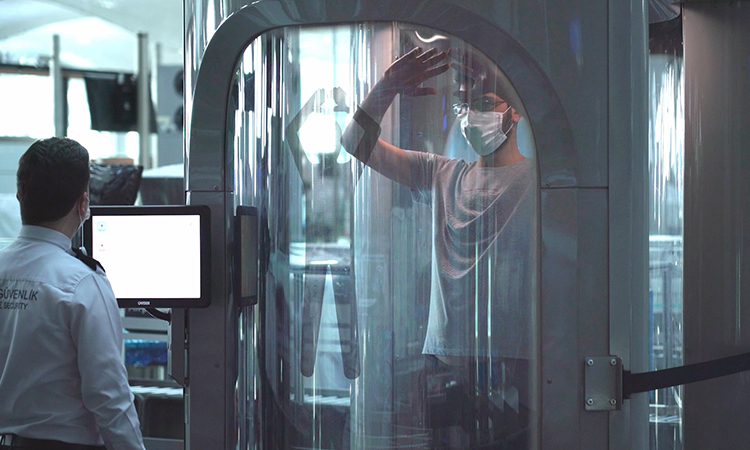

Credit: Istanbul Airport
Our staff are receiving virtual, or face-to-face, support in how to handle the current working conditions. Naturally, many of our face-to-face training programmes have now moved online, which a focus on COVID-19-related subjects.
Since the beginning of the pandemic, our focus on customer needs has expanded to centre on the health and wellbeing of our passengers at a level not seen before”
We have launched a COVID-19 testing centre for departing passengers and an inbuilt, 5,000m2 laboratory inside the terminal on the arrival floor. Thus, we have become the first airport in the world to be accredited on the basis of the Airports Council International (ACI) Airport Health Accreditation programme, which covers topics such as cleaning, disinfection and passenger communications. We also received the Airport Pandemic Certificate, awarded by the Directorate General of Civil Aviation of Turkey, due to our tight measures. In addition, of course, we signed the COVID-19 Aviation Health Safety Protocol by the European Union Aviation Safety Agency (EASA) as Turkey’s first, and one of Europe’s few, airport.
We have always strived to be a very passenger/customer-oriented company. Since the beginning of the pandemic, our focus on customer needs has expanded to centre on the health and wellbeing of our passengers at a level not seen before. As passengers gradually return to us, their expectations and feedback are as important as ever.
In what way is Istanbul Airport adapting in order to protect itself for the future?
I strongly believe that we already have enough measures in place. We have to ensure that there is a strict use of procedures in our operations. If other solutions are introduced globally, we would be sure to implement them in the shortest time possible, but I believe that airports have already responded exceptionally. For me, the most important thing is that the measures we have implemented are carried out and followed exactly and without exception.
Contactless solutions, biometric solutions and digitalisation should be introduced as much and as quickly as possible”
Equally, we need to introduce solutions which give passengers more control over their journey and make them less dependent on us whilst they are at the airport. This is why contactless solutions, biometric solutions and digitalisation should be introduced as much and as quickly as possible in our business model and operations. In addition, we are working on sensor-based solutions to track passengers in order to avoid hotspots in the terminal. We already have over 4,000 sensors working in the airport, and we are following passenger flows both airside and landside of the terminal very closely in order to prevent any crowded locations.
If you know that all airlines and airports, as well as governments, are working in an orchestrated manner to manage and exchange information to ensure the health and safety of passengers and personnel, then passengers, and the sector, would be greatly reassured”
Another issue requiring a global effort is information exchange and the use of big data in managing that information. Specifically, the exchange of information between passengers, airlines and governments. Presently, there isn’t a mechanism to access information about the passengers who are coming to your country. While Turkey will have this information as the origin country of the passenger, for instance, the arriving country does not. The exchange of this information would help to contain the virus in the aviation industry. We need to know whether a passenger has had any contact with the coronavirus or any risk that they possess. If we have this information on a global scale, we could manage those passengers once they come to Istanbul, and not mix them with other people coming from different countries. It would also give more confidence to the world – if you know that all airlines and airports, as well as governments, are working in an orchestrated manner to manage and exchange information to ensure the health and safety of passengers and personnel, then passengers, and the sector, would be greatly reassured. I believe that it would also enable us to regain passenger trust much more quickly.
Future passengers’ expectations are expected to change. What do you think will be the most important features for future passengers?
We’ve found that passengers feel safer using contactless/touchless processes in the airport and are very concerned about handing over their passport and boarding pass to airport personnel”
Contactless solutions have already been introduced into our operations. We’ve found that passengers feel safer using contactless/touchless processes in the airport and are very concerned about handing over their passport and boarding pass to airport personnel. Therefore, we want to introduce biometrics further into our operations. However, biometric solutions cannot be inserted by us alone. We need the support of government – in our case, the Turkish government. For this, there are educational processes that we need to work on together with our Minister of Interior, as well as government. But contactless passenger processing is something that we were working on before the pandemic hit, and we will definitely be pushing the government to let us use face ID: Biometric recognition systems for passengers to travel and use as ID while they are at the airport.
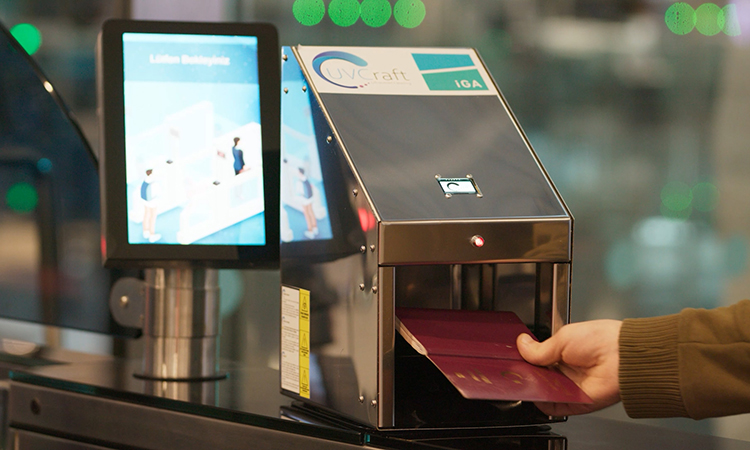

Credit: Istanbul Airport
We have already placed smart cameras inside the terminal so that we can easily take biometric face data from passports or the kiosks around the terminal. With this picture, passengers can easily travel inside the terminal, and even do some shopping, without needing to show their IDs. We have been in close discussions with the state to let us have access to passenger data in the state system. Once the picture taken at the airport is confirmed by the state in the database, we would be in a position to start the contactless passenger flow at airport touchpoints from check-in, passport control and even boarding.
What do you think the future of the aviation industry will look like in a post-COVID-19 era?
Aviation has been impacted severely by the crisis, the effects of which extend to tourism overall. What we are seeing today is governments taking individual decisions, which is actually making the situation worse. We need risk balanced and practical measures. Quarantine does not fit into this definition, because it is fuelling fear and consequently leaving sectors, like aviation, totally deserted.
To achieve a faster opening of the sector and much faster movement of people all around the world, for both continental and intracontinental travel, we need faster testing procedures”
Global common standards are what we need to open the sector and travel restrictions must be lifted. How can we persuade people to travel when the world is being so restricted? Fast testing is the only solution. PCR testing is the most reliable and accepted test procedure right now, but it can take up to six, eight or maybe 24 hours. This is simply too long. Passengers need to know that the person sitting next to them doesn’t have COVID-19. We have to find another testing method, such as antibody or LAMP tests, which Heathrow Airport started to apply recently. To achieve a faster opening of the sector and much faster movement of people all around the world, for both continental and intracontinental travel, we need faster testing procedures. PCR is (for now) the only solution, but it takes too long, and insisting on 14 days of quarantine is something we definitely can’t continue with. If we don’t open the doors for travel and aviation, then not just aviation but the world itself will take far too much time to return to pre-COVID-19 levels globally. We need coordinated, globally accepted protocol worldwide.
Globally, we need to reopen the sector, with a global approach to measures and solutions. Today, we cannot open international travel as much as domestic travel, because every country is imposing its own regulations and requirements. Imagine 200 different countries with 200 different requirements – travel would be virtually impossible. Governments have to work together to urgently find ways to re-establish global connectivity by re-opening borders and airspaces to each other in a controlled manner.
Kadri Samsunlu became Chief Executive Officer of iGA Airport Cooperation in September 2017. Samsunlu has a background in mergers, acquisitions and financing in his previous work experiences. He has been leading iGA Airport Operation, as well as iGA Construction, since 2018, and he managed the beginning operational period of Istanbul Airport after the completion of the construction process. Under Samsunlu’s leadership, Istanbul Airport, while leaving its first operating year behind, has served 64 million passengers and 74 airlines operating scheduled flights between 6 April 2019 and 31 March 2020.
Related topics
Airport crisis management, Augmented reality (AR)/ Virtual reality (VR), Biometrics, COVID-19, New technologies, Passenger experience and seamless travel, Passenger volumes, Regulation and Legislation, Safety, Terminal operations
Related airports
Related organisations
Airports Council International (ACI World), European Union Aviation Safety Agency (EASA)





